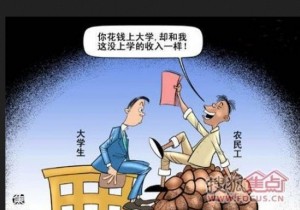Michelle Dunne, a diplomat and scholar, was recently barred from Egypt. She writes: “In my many trips in researching Egyptian politics and economics, I met with officials, politicians, activists and business leaders. The country has fascinated me since I studied there in the 1980s and later served at the U.S. Embassy in Cairo. Increasingly troubled by its stagnation under President Hosni Mubarak, in early 2010 I helped form the Working Group on Egypt. This bipartisan group of scholars urged the Obama administration to take Egyptians’ popular demands for political and economic reform into account. The group recommended U.S. political and economic carrots to support the democratic transition that was promised after Mubarak’s 2011 ouster, as well as sticks after President Mohamed Morsi from the Muslim Brotherhood took anti-democratic steps in 2012. After popular disaffection with Morsi paved the way for a military coup in July 2013 that ended the democratic transition, followed by a bloody crackdown, the group called for application of the U.S. law that required suspending military assistance in such cases, a step the administration later took.
In my own research, I looked into the unprecedented human rights abuses, domestic terrorism and startling politicization of the once-respected judiciary that ensued.
My deportation provoked a flurry of debate in the Cairo media. While many Egyptian commentators accepted the foreign ministry’s line that I had tried to force my way into the country without proper documentation, a few prominent voices highlighted what the incident said about Egypt’s political trajectory. Can Egypt be considered a law-respecting state if it varies its visa rules depending on whether the government likes or dislikes the visitor? And what does it mean if Egypt excludes foreign visitors whose views the government dislikes?
Egypt is not North Korea, but my deportation is just the latest and least important of many steps toward an authoritarianism much nastier than that of the Mubarak era. I am safely at home, but there are an increasing number of Egyptian rights activists, journalists and politicians who have been forced into exile in the past several months.
On the very day I left for Cairo, I had met with businesspeople from the American Chamber of Commerce in Egypt, several of them old friends, who had come to Washington to proclaim that Egypt was stabilizing and open for business. They were hoping to drum up interest from foreign investors in a high-profile economic conference planned for March.
The question is whether Egypt can stabilize the country and attract foreign investment needed to enliven the economy, while repressing all criticism of government policies from inside or outside and abandoning any semblance of the rule of law. Some Egyptians point to Russia or China as models, but Egypt has neither Russia’s mineral wealth nor China’s more qualified labor force. It must ultimately unshackle the potential of its young and undereducated population, which will require opening the space to allow individual initiatives and ideas.










